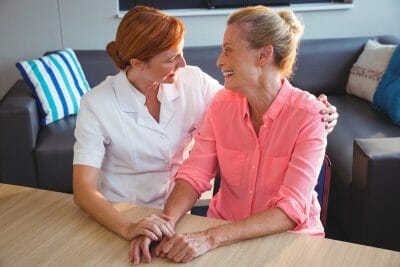As we age, the concept of independence takes on new dimensions. Once defined by our ability to make decisions and take action freely, it now includes managing daily activities like cooking, cleaning, and personal care. As we head into our golden years, the question that often emerges is: How can we maintain our independence while ensuring we have the necessary care?
Understanding the Needs of Aging Adults
In today’s fast-paced world where families are spread out across continents and generations are more disconnected than ever before, elderly adults often face unique challenges. In such situations, a little support goes a long way in enhancing their quality of life.
Aging is inevitable; it’s how we manage this journey that makes all the difference.
The Power of Community
Building strong social connections is crucial at every stage of life, especially during our later years. Communities bring together people who share common interests or experiences. Socializing in groups can stave off loneliness and provide emotional support when facing challenges related to aging.
Gardening clubs, book discussion groups or even regular neighborhood walks can create opportunities for interaction. Shared activities not only boost morale but also contribute to physical well-being.
Embracing Technology
Technology has dramatically transformed how we live our lives today – from online shopping to video chats with loved ones living far away. For older adults too, embracing technology can significantly enhance their autonomy.
Learning new skills keeps the mind active and engaged. So why not start with mastering a smartphone or learning how to navigate the internet? Not only does this break down barriers of isolation but can also be a source of entertainment.
Moreover, advancements in technology are playing an important role in healthcare management as well – from reminders for medication times to virtual doctor appointments.
Keeping Active
Regular physical activity plays a key role in maintaining health during old age. It helps keep chronic diseases at bay while improving mobility and balance – critical factors that contribute to independence as one ages.
That said, safety should always be paramount when choosing activities suitable for seniors. Gentle exercises such as walking or yoga are great options that come with minimal risk of injury.
Furthermore, engaging in hobbies or doing things you love boosts mental health tremendously. Whether it’s painting canvases with vibrant colors or knitting cozy sweaters for grandchildren – these activities offer joy as well as an avenue for self-expression.
In-Home Care: A Viable Option
While implementing these strategies can help maintain autonomy during old age, sometimes additional assistance might become necessary due to health issues or simply advancing years.
Here’s where in-home care in Myrtle Beach comes into play – offering personalized services right at home – ranging from help with daily tasks like meal preparation and personal hygiene to companionship services providing social interactions which drastically improve quality of life.
The biggest perk here is flexibility – services can be tailored based on individual needs so seniors get just the right amount of help they need without compromising their sense of independence.
In essence, getting older doesn’t necessarily mean losing independence.
In conclusion, fostering community connections, staying physically active & mentally engaged along with leveraging technological advancements go a long way in maintaining autonomy during old age. And remember – there’s no shame in seeking some extra help at home if needed because ultimately what matters most is enhancing quality of life while preserving dignity and respect!
Maintaining independence throughout aging is more about adapting than conceding defeat.
